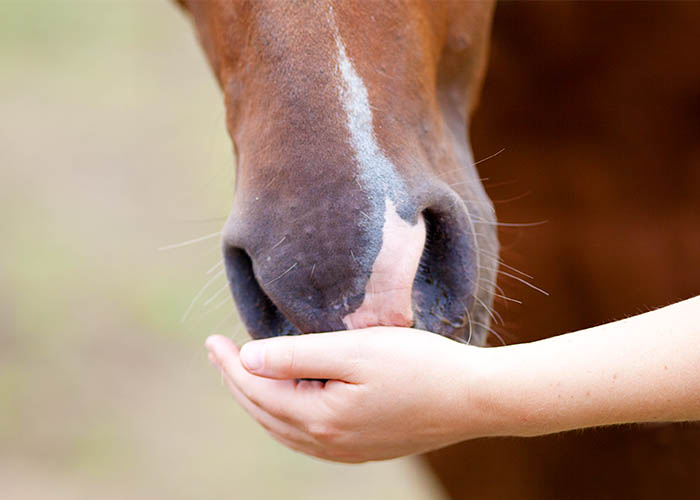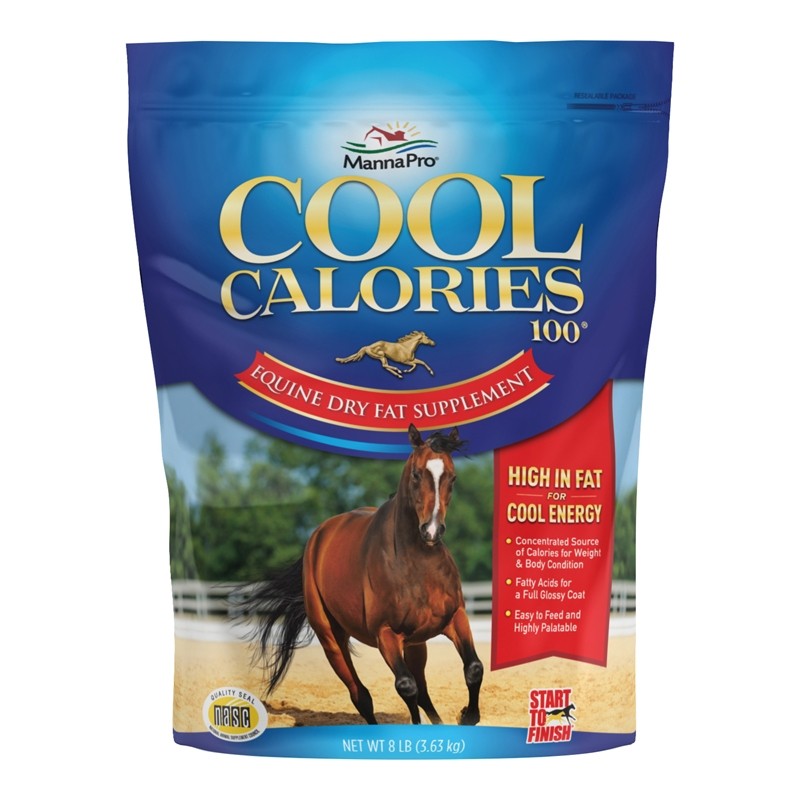
Many equestrians have owned or worked with underweight horses or a horse that was a “hard keeper.” A hard keeper refers to a horse who is consistently thin and has a difficult time gaining and maintaining weight. Helping your horse gain weight is a popular subject that many people struggle with; in this blog, we look at this topic with a well-rounded approach to help you assist your horse in gaining weight and building muscle mass.
Before you modify your horse’s diet, it is imperative to ask yourself, “Is there an underlying medical condition?” Horses with dental issues, ulcers, high anxiety, or a high parasite load may have difficulty gaining or maintaining weight. It is essential to work with your veterinarian to ensure that your horse is healthy, especially if your horse has suddenly dropped weight without a change in workload, diet, or barn situation.
After your horse has been assessed by the veterinarian, and all health concerns have been ruled out, identify your horse’s body condition score (BCS). With a ranking from one (emaciated) to nine (extremely obese), the Henneke Body Score System helps you objectively rank your horse’s condition, by looking at specific body areas of your horses that reflect weight change. A score of five or six is considered ideal. Learn more about assessing your horse’s BCS and what the scores mean on our blog post, Identifying Your Horse’s Body Score. Kelly Vineyard M.S., PhD, a senior equine nutritionist at Purina Horse Feeds, explains, “For the average horse, it will take about 50 lb to move your horse’s body condition score up a point.” This helps you to determine how much weight your horse needs to gain to obtain optimal body conditioning.
After you have assessed your horse’s body condition and weight gain goals, you need to take a closer look at your feeding program and activity level. Carefully weigh your horse’s grain ration to determine how much your horse is eating at every feeding. Then, refer to the feed tag to determine the number of calories (Mcal) per pound or kilogram of feed. If your feed tag does not list the Mcal/kg, you can easily calculate the caloric value by referring to the nutritional values. Typically, fats contain 9 Mcal/kg, sugar contains 4 Mcal/kg, and protein about 5 Mcal/kg. For optimal weight gain, consider looking for feeds that are high in fat. They will have a higher level of calories per pound than their high-protein counterparts.
“To help horses gain weight, you essentially need to increase their caloric intake, either with calorically denser feeds or more feed,” explains Dr. Vineyard. Gradually increase your horse’s rations at each feeding, and consider adding in another feeding to give your horse additional calories. Karen Davison, PhD, an equine nutritionist and the Director of Equine Technical Solutions at Purina Horse Feeds, comments, “It’s important to frame weight gain feedings with a set of guidelines, do not feed more than 5-6 pounds of grain per meal.”
In addition to increasing your grain, you also must ensure that your horse is meeting their forage requirements. Generally speaking, a horse should be eating a minimum of 1.25-1.5% of their body weight in forage each day. For horses on the thin side, aim to feed 2% of their body weight in forage. “Sometimes, I like to recommend that horses with difficulty gaining weight eat a forage that is higher in calories, such as alfalfas and alfalfa mix hays,” Dr. Vineyard continues. “These hays have more calories per pound than other forages.”
Ideally, horses that need to gain weight would have access to free-choice quality forage. In order to prevent excess waste, consider feeding the hay at consistent intervals during the day or keeping the hay elevated in a hay feeder, like the Hay Chix Free Up Feeder or the Tarter Adjustable Hay and Grain Feeder.
Increasing your horse’s caloric intake can be as simple as feeding more grain or more forage; however sometimes you may need to supplement additional calories. Traditionally, horsemen have added corn oil as a source of extra calories. However, corn oil has been shown to have a low ratio of omega-three fatty acids to omega-six fatty acids. This high level of omega six acids can cause an increase in inflammation.
Now, equine nutritionists and veterinarians recommend using a weight gain supplement. These supplements, such as Amplify and Cool Calories, are available in liquid, powder, and pellet form which makes them easy to encourage even the pickiest of eaters to indulge in them. Weight gain supplements contain concentrated fats that help your horse gain weight without adding bulk to their diets. Some products, such as Uckele CocoSoya, utilize soy oil and coconut for increased calories, while others, like Omega Fields Omega Horseshine, use milled flax seeds. All of these sources provide the correct ratios of omega threes to omega sixes.

Manna Pro Cool Calories 100
This customer favorite is an excellent source of calories for horses and contains more than two times the energy of carbohydrates
Helping horses gain weight is a slow process, and you need to be realistic in your expectations and how long it will take your horse to achieve your desired results. Make sure that you chronicle your horse’s progress with pictures and periodic body score condition checks so that you can determine the success of your new feeding regime.
When helping your horse gain weight, the bottom line is that you need to maximize the number of calories that your horse is ingesting. At The Cheshire Horse, we love to work with our customers to develop feed programs to help their horses thrive. We encourage you to set up a complimentary equine nutritional consultation with a member of our friendly and highly trained sales team.
